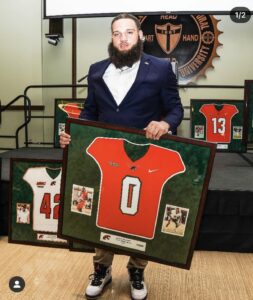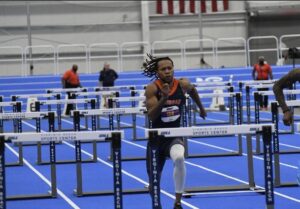
Talented Black student-athletes have filled predominately white institution’s (PWIs) athletic rosters by the dozens dating back to the end of segregation. PWIs budgets had more funding, better facilities, increased NFL scouting and ESPN coverage for most if not all conference games. These are undeniable deals that historically Black colleges and university (HBCUs) teams did not have the resources to provide.
Despite schools such as the University of Florida and University of North Carolina at Chapel Hill being public institutions just like Florida A&M and North Carolina A&T, the admission rate for the PWI’s is much larger and they receive remarkably larger checks from the state to accommodate the student population.
According to the statistics of hbcumoney.com, the combined endowment for every single HBCU in the U.S in 2019 totaled approximately $3.9 billion. Whereas the University of Pittsburgh has an endowment of over $4.2 billion and they don’t even rank in the top 15 largest endowments in the country.
The more funding the state provides an institution, increases the likelihood that their budget will allow for extravagant luxuries like indoor practice facilities and top-tier housing units for the athletes. A reality that is few and far between for HBCUs.
In recent years, HBCUs are slowly but surely receiving more funding and more ESPN screen time. HBCUs are taking strides to appeal to the luxurious life that 4- and 5-star high school football players dream of once they sign the dotted line.
Regardless of the materialistic appeal that PWI’s have on young athletes, HBCUs have a consistent reputation of providing a welcoming and incomparable experience. Former Offensive Graduate Assistant, Evan Astorquiza, speaks about his time with the FAMU football coaching staff and how the talent is changing.
“You got the rich culture that comes along with HBCUs, and with this new NIL deal, I think it allows for a lot of exposure for these athletes to come [here]. You look at Travis Hunter who just committed to Jackson State over Florida State…I mean you just see the traction that HBCUs are getting at the current moment,” said Astroquiza.
The NIL deal that Astorquiza is referring to is the decision NCAA made in July 2021 to allow collegiate athletes to monetize their name, image and likeness (NIL). This policy has altered the way athletes view their college offers because not only are they trying to join a program that will provide the best athletic experience possible, but they’re also striving to capitalize off their hard work and sportsmanship.

Morgan State University track and field hurdler, Duane Kizer, describes how the NIL rule decreases the appeal of attending a BIG10 or SEC program because of the weight the University’s name hold. Athletes are now making money off their names while making a big mark on campuses where they don’t “stick out like a sore thumb.”
“PWI’s have been favored over HBCUs because of the resources they offer and the fact that they have more funding on average. NCAA not allowing student-athletes to profit from their NIL made these PWI’s seem more appealing because they could offer more monetarily, materialistically, better facilities, etc. This gave many the belief that they had to neglect environments made for them where they can feel most comfortable because they had better opportunities for their athletic careers elsewhere,” said Kizer.
“With the new NIL rules, these schools don’t have to same advantage as they did before. These athletes don’t need as much from these schools anymore because they are already bringing in resources and income on their own. They’re confident they can go anywhere and still capture the necessary attention and maximize their potential to go as far as they desire in their athletic careers. They don’t need to go to an unfamiliar environment where they stick out like a sore thumb anymore. They can go to a school full of people who look like them, feel at home, not miss out on any opportunities that they felt they would have gotten at a PWI,” continued Kizer.
4-star rated NFL prospect, Savion Williams, transferred to FAMU last Fall after attending the University of Tennessee the previous football season as a defensive lineman and Lackawanna Junior College during 2017 and 2018. Williams explained how his experience at FAMU is “unmatched.”
“I definitely feel like if I had to chance to come to FAMU earlier, I would have done it because of the simple fact of the people I met here and the relationships that I developed,” said Williams.
Williams went on to highlight the effect the HBCU experience has on young black scholars and that if presented the opportunity to attend an HBCU “every African American male should experience [it].”
The appeal of attending schools in the BIG10 and SEC conferences may become an afterthought despite their sustainable funding because of the undeniable culture that can only be experienced at an HBCU.